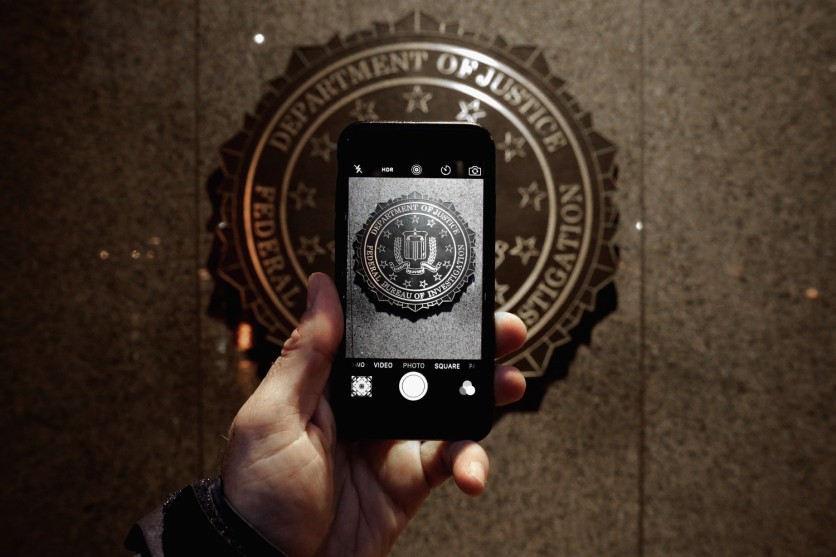The Federal Bureau of Investigation announced that the number of money lost to business email compromise (BEC) scams persists every year, with a 65% rise in the identified global exposed losses around July 2019 to December 2021.

WASHINGTON, DC - FEBRUARY 23: The official seal of the Federal Bureau of Investigation is seen on an iPhone's camera screen outside the J. Edgar Hoover headquarters February 23, 2016 in Washington, DC.
In fact, the Internet Crime Complaint Center (IC3) has received victim complaints amounting to 241,206 local and international incidents and a sum of exposed dollar loss at $43,312,749,946, reported by BleepingComputer.
According to the financial data reported to the IC3 last year, banks found in Thailand and Hong Kong were the primary international destinations of fraudulent funds.
"China, which ranked in the top two destinations in previous years, ranked third in 2021 followed by Mexico and Singapore," the FBI said.
This information was disclosed in a recent public service announcement released on the ICS site to update the previous PSA from September 2019, when at the time FBI revealed that losses to BEC scams reported by victims around June 2016 to July 2019 amounted to over $26 billion.
Furthermore, the IC3 2021 report underlined that BEC scams were the cybercrime with the highest reported total victim losses last year. Their data showed that out of the 19,954 recorded complaints of victims, they had losses of almost $2.4 billion in 2021.
What are BEC Scams?
BEC scams could vary in tactics, examples are social engineering, phishing, and of course hacking. These tactics are employed to compromise business email accounts which will be used to redirect the payments to the attacker's bank accounts.
This type of scam can also be called EAC or Email Account Compromise, where scammers are likely to target small, medium, and large businesses. However, they will still try to attack individuals if they know that the person has huge sums of money.
According to the FBI, the success rate of these scammers is high since they generally impersonate someone who has the target's trust, like business partners and company executives.
But the FBI also explained that the scam could be more complex since it is not always a "transfer-of-funds request."
"One variation involves compromising legitimate business email accounts and requesting employees' Personally Identifiable Information, Wage and Tax Statement (W-2) forms, or even crypto currency wallets," the Bureau explained.
What to Do to Secure Yourself From BCE Scams?
To ensure that you are protected against BCE scams, here are the important precautions provided by the FBI in their public service announcement.
- Use secondary channels or two-factor authentication to verify requests for changes in account information.
- Ensure the URL in emails is associated with the business/individual it claims to be from.
- Be alert to hyperlinks that may contain misspellings of the actual domain name.
- Refrain from supplying login credentials or PII of any sort via email. Be aware that many emails requesting your personal information may appear to be legitimate.
- Verify the email address used to send emails, especially when using a mobile or handheld device, by ensuring the sender's address appears to match who it is coming from.
- Ensure the settings in employees' computers are enabled to allow full email extensions to be viewed.
- Monitor your personal financial accounts on a regular basis for irregularities, such as missing deposits.
Furthermore, victims are advised by the FBI to immediately reach out to their bank to request a recall of funds. They are also encouraged to file a complaint with the FBI at BEC.ic3.gov as soon as they fall victim to these scams.
Related Article : Today is World Password Day, Here Are Ways to Protect Your Password and Personal Security
This article is owned by Tech Times
Written by Joaquin Victor Tacla
ⓒ 2026 TECHTIMES.com All rights reserved. Do not reproduce without permission.




